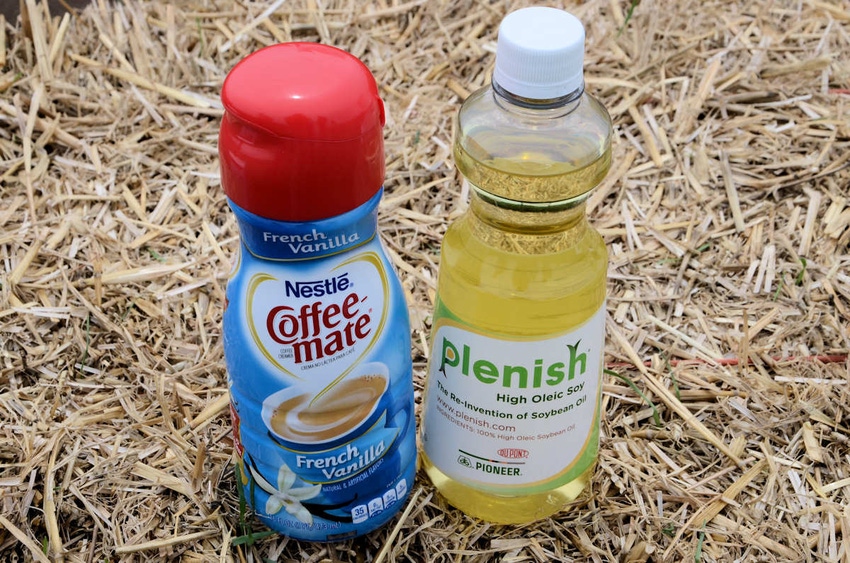August 10, 2015

Perhaps it was news a few years ago that the Food and Drug Administration had painted a target on trans fats. Or the more-recent news in June that FDA was eliminating the product by removing the "generally recognized as safe" designation for trans fats- which forces food makers to switch to alternatives.
That first FDA notice about trans fats a few years ago was huge for soybean oil markets cutting demand as much as 60% versus other oils can could be used without partial hydrogenation (which turns healthy soybean oil into an artery clogging trans fat). Now with the loss of the GRAS designation for trans fats the pressure is on, yet along the way there's been progress on a different kind of soybean oil.
DuPont Pioneer was already at work on its high-oleic soybean - Plenish - and the work has continued. Russ Sanders, director of food and industry markets, DuPont Pioneer says development of the tech is truly a "chicken and egg" issue. The market won't commit to high-oleic oil without a supply, but why plant something no one is buying? "We've been working to develop the market," Sanders says.
And during a multi-stop tour of different technologies last week at DuPont Pioneer HQ in Johnston, Iowa, we saw something interesting - a Nestle coffee creamer container on a hay bale. Why? It turns out that the company has now committed to using high-oleic oils (either soybean - Plenish; or canola) in its products. That's a breakthrough for DuPont Pioneer since Plenish is now part of that commercially available product.

It takes a little doing to find it, but this label for Nestle coffee creamer shows high-oleic soybeans as an ingredient - that's Plenish from Pioneer DuPont, and a significant new market.
Plenish has also made strides in the commercial fryer business with products from ADM and others that have longer "fryer life" than traditional oils. That's a big deal to restaurants since changing out oils is costly and time-consuming.
What makes Plenish different is the fact that it has 75% oleic acid versus traditional soybeans at 22% and the polyunsaturated fats, which can cause trouble, drop from 60% to 12%. And Plenish, which is a biotech product, carries other input traits like glyphosate tolerance that make it easy enough to raise.
"We were committed that this product would not require a big change in the agronomics of producing soybeans," Sanders says. "Of course, it does have to be segregated for the buyer." There's no risk if Plenish soybeans go into the commercial market by mistake, but buyers seeking that better oil need to know what they're getting.
DuPont Pioneer now has 10 varieties of Plenish soybeans and is growing the number of acres available for raising the crop. If you sell at harvest there's a 40-cent premium. Store it for on-demand delivery and there's a 50-cent premium. If you're interested in raising Plenish soybeans, start the conversation with your local DuPont Pioneer dealer.
You May Also Like




